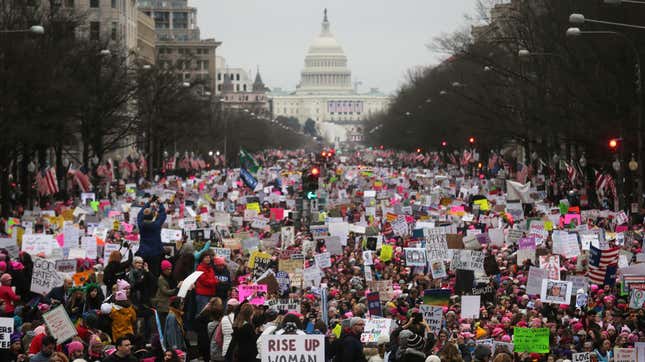The National Archives Honors Women By Censoring Them
Latest

If we’re being honest with ourselves it’s only fair to admit that, at the end of the day, the National Archives are big snooze. Having lived in Washington, DC for nearly half a decade I made a solid two and a half attempts to make it through the Archives and appreciate the pieces of our nation’s history that are preserved there (I say half because once I didn’t even make it through the front door). But, and no offense meant to the Archives here, there’s only so much time one can expect to spend looking down at a lot of faded pieces of parchment that are apparently the Magna Carta or the Declaration of Independence or whatever, before your eyes get tired and you need to get out of the temperature controlled rooms to feel warm and alive again.
Regardless of the general lack of excitement reverberating through their halls however, I’m glad the National Archives exists because no matter how boring it may be at times, it documents in truth the history of our country, which is incredibly important and, as the Archives states in their own mission, access to the Archives allows “Americans to claim their rights of citizenship, hold their government accountable, and understand their history so they can participate more effectively in their government.”
Or at least it did, before they decided to start altering historically significant photographs in an effort “not to engage in current political controversy.” Which is how Miriam Kleiman, a spokesperson for the Archives put it when news surfaced that federal agency altered a picture of the 2017 Women’s March to remove the words ‘vagina’ and ‘pussy’ from protest signs, as well as altering signs that were critical of Donald Trump.
-

-

-

-

-

-

-

-

-

-

-

-

-

-

-

-

-

-

-

-

-

-

-

-

-

-

-

-

-

-

-

-

-

-

-

-

-

-

-

-








































